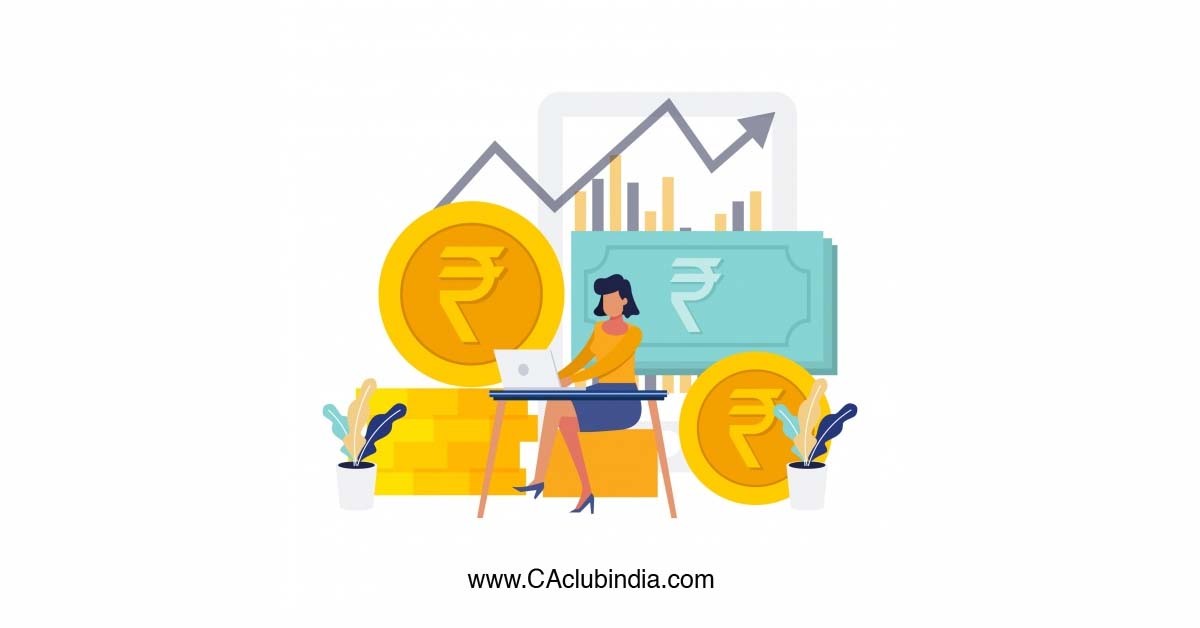India's GDP dropped by a massive 24.4% from April to June 2020. As per the provisional estimates of Annual National Income 2020-21 and the quarterly estimates of GDP for the fourth quarter of 2020-21, India's economy further contracted by 7.4%. The following third and fourth quarters only witnessed a weak recovery with a rise in GDP by 0.5% and 1.6% respectively.
Thus, it is evident from these data that the Indian economy had fallen into recession. This economic slowdown resulted in higher unemployment, lower incomes and in general financial crisis.
To overcome this situation and avoid such a crisis in future, one might consider taking proper preparation for securing personal finances.
8 smart ways to prepare for personal financial crises
During financial crises, asset prices decline in value, thereby making it difficult for consumers and businesses to pay debts. Further, due to a shortage of liquidity, individuals fail to start up new ventures and improve their financial situation in general. To that end, individuals can start securing their existing finances and avoid a crisis in future.
Here are the smart ways to do so:

1. Maximise your liquidity
An investment plan depends on the goal of an individual. One planning for retirement saving should consider a prolonged lock-in period, whereas investments made to overcome financial emergencies should be more liquid. To that end, one should invest in instruments that come with less risk in case they decide to withdraw the sum prematurely. An example of such an instrument is a fixed deposit.
2. Cut down on unnecessary expenses
In order to make an emergency budget, one needs to reduce the monthly expenses by cutting down unnecessary spending. Some ways in which an individual can curtail such expenses are:
- Saving on electricity and water bills by monitoring the usage
- Closing accounts that are no longer in use but for which one needs to bear maintenance costs
- Cancel subscriptions if not used
- Save on cable costs by resorting to several OTT platforms
- Buy authentic brands of products that last for a longer time than the cost-effective ones
Also read: E-commerce company: How to start and financial/tax compliances around it
3. Buy car insurance
Another effective way of securing personal finances is by obtaining insurance coverage. Similar to other assets, a four-wheeler is also exposed to innumerable risks. In unfortunate events of accidents, one needs to bear exorbitant costs in order to repair the damages caused to their vehicles.
However, a car insurance policy effectively covers such repair costs and helps in reducing financial liability. As per the Motor Vehicles Act, obtaining at least a third-party car insurance plan is mandatory. This plan covers third-party liabilities only.
However, a third-party insurance policy only covers damages caused to a third-party person, property or vehicle. To cover own-car damages, one might want to consider purchasing a comprehensive insurance plan. This insurance also gives coverage benefits in case a car suffers damages from natural disasters like floods, earthquakes etc. Further, one can avail add-on benefits by opting for comprehensive insurance.
Read more: All about 26AS under Income Tax Act
4. Prepare an emergency budget
It is vital to keep track of the income and expenses, as it helps an individual to prepare an emergency fund. While creating a budget for emergency funds, one must consider their financial obligations and risk appetite. For instance, an individual without any dependents will require a lesser budget for an emergency fund compared to an individual who has a family to take care of.
5. Purchase health insurance
The rising medical costs are one of the direct causes of an individual's increased financial obligation. In addition, emergency hospitalisation due to accidents or illnesses incurs huge expenses that disrupt one's financial planning.
Considering the medical inflation, several insurance companies provide health insurance that covers the treatment costs and other hospital expenses. By obtaining a health insurance policy, policyholders can opt for reimbursement or a cashless facility during the treatment of an illness or accidental injury. During medical emergencies, an individual might need to pay out of his pocket for the high treatment costs. This can increase financial liability and ultimately result in a crisis.
Therefore, buying health insurance to cover those charges can help an individual save for the future. Further, one can choose a policy that comes with affordable premiums by comparing various plans online.
Read more: What is tax planning and why it is so important for individuals or businesses
6. Pay off all debts timely
Defaulting bill payments and other debts can increase an individual's financial obligation as there may be hefty penalties. Similarly, missing out on credit card payments can increase the interest on the existing amount in the account.
Thus, individuals might want to consider clearing off debts on time before preparing an emergency fund to secure personal finances in times of crisis. For timely payment of utility bills, one can set standing instructions to their accounts and review the debt accounts regularly to avoid defaults.
7. Boost your income
Individuals planning to secure their personal finances might consider earning extra cash to boost income. Although the income earned may be less than the primary source of income, the additional funds can add up to the emergency corpus.
Read more: Sec 115BAC: New system for calculation of IT liability of individual and HUF
8. Improve your credit score
In the event of a personal financial crisis, an individual might need to secure loans from financial institutions for additional funds. While sanctioning a loan amount, lenders check the payment history of a borrower. Hence, individuals with a clear payment track record and good credit score stand a better chance at availing high-quantum loan amounts.
As personal financial catastrophes are almost always unpredictable, one must consider getting prepared for the same beforehand. This will lessen its impact and reduce uncertainty and stress. In this regard, individuals can follow the aforementioned pointers and plan better.








 CAclubindia
CAclubindia
